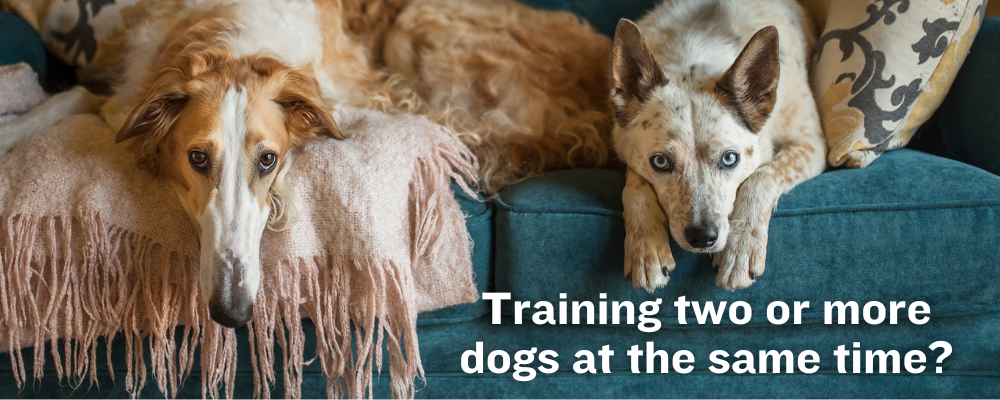Do you know what happens when a dog has constipation? In addition to being uncomfortable, it can be a serious medical condition. The straining and hard bowel movements that come from blocking the rectum, if left untreated, can cause other problems, such as loss of appetite, weight loss or even vomiting.
While a visit to the veterinarian is often necessary for a dog who’s been constipated for a while, there are some easy home remedies to help your pup get back on his or her feet.
You may also like:
German Shepherd Weight Chart: Is My Dog Overweight or Underweight?
How Cold Can German Shepherds Tolerate?
Can Dogs Eat Vanilla Ice Cream?
What is dog constipation?
Constipation happens when your four-legged friend is characterized by infrequent bowel movements and hard, dry fecal matter. Dogs that experience constipation may experience pain while trying to empty their bowels and struggle to defecate in general.
What are the signs of constipation in dogs?
If a dog is constipated, he or she is unable to defecate for at least 2 days. And in some cases, your dog may circle excessively, scooting (dragging bottom along the ground) or squatting frequently, or even crying out in severe cases – in an attempt to defecate but fail.
If you’ve noticed irregularities in your dog’s bowel movements, there’s a possibility that it could be constipated. Here are some dog constipation symptoms to watch out for:
- Infrequent bowel movements: Your dog hasn’t defecated within 48-72 hours.
- Hard stool: Your dog’s stool can be described as hard and dry, and look like pebbles.
- Pain and difficulty: Your dog shows signs of struggle and pain during defecation.
- Restlessness: Constipated dogs tend to circle around a lot before trying to defecate. Apart from restlessness, you may notice your dog dragging its bottom across the floor.
- Loss of appetite: If your dog is constipated, you might notice changes in its appetite.
- Weight loss: Since constipation could cause a loss in appetite, it’s possible for your dog to lose weight due to its condition.
- Vomiting: Dogs with constipation may experience vomiting to get rid of the waste in their system.
What causes dog constipation?
There are a handful of causes when it comes to dog constipation. Digestive system irregularities are often the most common ones. Constipation can affect all breeds of dogs but older canines are more prone to this condition.
The common causes for dog constipation include:
- Age: The older your dog gets, the more prone it becomes to difficulty in bowel movements.
- Lack of exercise: Regular exercise helps regulate blood flow. If your dog gets too little exercise, it might experience difficulty digesting food properly.
- Joint Issues: Dogs with joint pain or mobility issues may have a hard time “assuming the position,” making a productive poo a no-go.
- Dehydration: Water is essential to your pet’s digestion. Dehydration in dogs can slow down digestion, which could affect the getting rid of the waste.
- Poor diet: A lack of fiber or acorn-based diet could hinder bowel movement.
- Swollow of foreign objects: If your dog ingests foreign objects like grass, hair, or tissue, proper defecation could become difficult.
- Side effects of medication: If your dog is on medications, constipation could be one of its side effects.
- Potential health conditions: Constipation could be a sign of a deeper health issue. For example, your dog could be experiencing problems in its kidney or anal glands.
Home remedies for dog constipation
If it’s occasional constipation, home treatment is relatively simple. Just remember to contact your vet before administering any home remedy.
A few easy fixes include:
1. Exercise
Going for a walk or jog can stimulate his digestive system to start moving again.
2. Increase water intake
Encouraging your dog to drink more water will help. Adding a touch of broth to your dog’s water can make it more appealing, too.
3. Pumpkin
Feeding your dog a little bit of pumpkin with his food is a great way to ease constipation. Pumpkin is high in water content and a great source of fiber. You can either puree fresh pumpkin or use canned pureed pumpkin.
4. Bran (wheat & oat)
Bran works as a preventative (much like pumpkin), when added to your dog’s food regularly.
5. Olive oil
A small amount of olive oil in your pooch’s meal can often do the trick. But don’t overdo it! Too much olive oil will cause diarrhea.
6. Aloe Ferox
Aloe Ferox has a beneficial effect on digestive functioning and acts as a natural system cleanser and remedy.
How is dog constipation diagnosed?
If your dog shows signs of being constipated for more than a few days, take it to the vet ASAP to help relieve your pet of its discomfort.
Your vet will start with a general physical exam and ask about your pet’s medical history. Be prepared to tell your vet everything about your dog’s conditions for a more accurate diagnosis.
Moreover, your vet may perform the following checks:
- Rectal examination to check for causes or abnormalities
- Blood tests and urinalysis to see if the constipation is caused by dehydration or an infection.
In most cases, constipation can be treated with medication and other natural remedies.
The vet will likely take a medical history, and may recommend one or a combination of these treatments:
- A prescription diet high in fiber.
- A stool softener or other laxatives.
- Probiotic supplements: Dog probiotics give a little boost to your pup’s gut health. These supplements help restore a natural balance to the belly which can aid in regularity.
- Psyllium seed supplements: Like humans, psyllium supplements can be used to treat constipation in dogs.
- Injecting fluid to your pet’s bowels through his rectum to stimulate defecation.
The cost of such treatments can be costly, having an insurance plan or cost-sharing service in place can keep you in good hands without breaking your bank.
Conclusion
The good news is, this condition is only temporary and can be easily treated at home.
However, if the situation worsens, it may affect your dog’s demeanor, activity levels, and appetite. You should consult your vet if your dog experiences any symptoms and is unable to defecate for 48 to 72 hours in a roll.
Further Questions
How often should a dog poop?
Every dog is different, depending on age, diet, lifestyle, and energy level. But 1 to 5 poops per day are normal and healthy for most dogs. As long as they stick to a consistent regular schedule, they should be okay.
What if my dog hasn’t pooped in 2 days?
If your dog has not pooped for a couple of days, he can be at risk of developing obstipation, or an inability to poop. Try to increase your dog’s water intake, add pumpkin to its diet, and keep up the exercise. If it doesn’t work for another day or two, you should take your dog to the vet.
How long can a dog hold its poop?
Most adult dogs that are healthy can hold their poop for at least 8 hours if they really have to. When it comes to healthy puppies, they can hold their poop for at least 1 hour each month in age and can hold their poop for at least 8 hours once they hit 8 months old.
More on German Shepherd Allergies

- Most Common German Shepherd Allergies: What You Need to Know
- How to Help Your German Shepherd With Allergies?
- Ear Allergy in German Shepherds: Everything You Need to Know
- Chicken Allergy in German Shepherds: Everything You Need to Know
- German Shepherd Skin Allergies: Best Tips for Relief
- How to Stop Itching in German Shepherds? Effective Remedies Owners Use
- You may also like:
- Is Pet Insurance Worth It for Your German Shepherd Dog?
- Is Grain-Free Good for German Shepherds?
- Worst Dog Food for German Shepherds: Things to Avoid
- Best Dog Food for German Shepherds with Sensitive Stomach
- German Shepherd with Diarrhea: A Feeding Guide
- Dog Diarrhea: Simple and Effective Home Remedies That Dog Owners Use
- Constipated Dog: Causes and Easy Home Remedies



